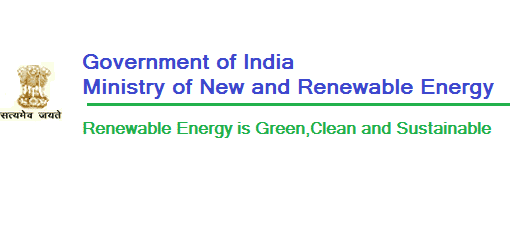• Biogas Development Programme • National Programme on Improved Chulhas (NPIC) and • Integrated Rural Energy Programme (IREP).
Implementing Agency
The NPBD is being implemented by: (i) State nodal departments, State Corporate bodies. (ii) National and Regional level registered societies and NGOs. (iii) Panchayati Raj Institutions and Local bodies. (iv) Khadi and Village Industries Commission (KVIC), through its state directorates institutions and rural energy technicians. (v) The National Dairy Development Board (NDDB) is implementing the project in some states by involving Tree Grower Cooperative Federation and Milk producer’s Unions. (vi) Two national umbrella NGOs namely, All India Women’s conference (ASIWC), New Delhi and the Sustainable Development Agency (SDA), Kerala have been implementing the project through their network of State-level NGOs. (Vii) A large number of rural voluntary agencies and entrepreneurs have been involved by the State nodal departments and implementing agencies in the construction of biogas plant on a turnkey basis.
II. SOLAR ENERGY PROGRAMMES
Solar energy is one of the major forms of non-conventional or renewable energy sources. Some of the advantages of solar energy as an attractive option are its widespread distribution, non-polluting nature, an inexhaustible supply. The two principal technical routes through which the heat and light emanating from the sun can be used for diverse applications are the solar thermal and the solar photovoltaic respectively. These two programmes form part of the Solar Energy programme which is being implemented by the Ministry of Non-Conventional Energy Sources. India receives solar energy equivalent to over 5,000 trillion kWh per year which is far more than the total energy consumption of the country. The daily average solar energy incidence varies from 4 to 7 Ksh per square meter depending upon the location. Solar Cooker and Solar Photo Voltaic programmes are two major programmes implemented to tap solar energy under which the Ministry involves and supports the VOs and NGOs.
III. SPECIAL AREA DEMONSTRATION PROGRAMME
Background
A special area demonstration programme was started in 1992-93 to demonstrate the utility of non-conventional energy systems and devices in remote and far-flung areas, including hilly districts and islands. Two years later, a scheme entitled Energy Parks was launched to create mass awareness, besides giving wide publicity among both the rural and urban population, especially students and teachers, about the benefits of various renewable energy systems. The “Energy Park” Scheme was modified in 1998-99 to focus on the maintenance of the parks. A typical energy park will consist of improved Chulhas (fixed and portable type), solar PV (photovoltaic street light, solar PV domestic lights, solar lanterns, solar water heating systems, solar cookers, solar stills, a boi-gas plant, a solar PV radio, a Solar PV power pack, solar PV colour TV, a solar PV pump and a wind pump. The focus of the programme is on the establishment of energy parks in schools, colleges and universities to provide students and teachers the opportunity to conduct experiments and understand the basic working principles of renewable energy systems.
Financial Assistance
- The scheme provides for financial assistance up to a maximum of Rs 10 lakh per park to meet the full estimated costs of installation of energy systems and devices.
- Assistance for maintenance is provided at the rate of 7 per cent of the capital cost of the systems and devices for a total period of four years starting from the second year.
- Nodal agencies are given up to Rs 5,000/- per park for monitoring and reporting purposes.
IV. SCHEME OF ASSISTANCE FOR SEMINARS / SYMPOSIA / WORKSHOPS
Background
Human resource development is a vital ingredient for the success of any programme, the Ministry of Non-Conventional Energy Sources has accorded a place for this in all its activities. It has been organizing seminars, symposia, workshops, and conferences, study tours and training programmes, besides facilitating the participation of Indian scientists and technologists in international events as a part of its human resource development efforts.
Objective
The objective of the scheme is to provide financial assistance to voluntary organizations for organizing or supporting seminars, symposia and workshops. In order to bring about mutual interaction, exchange of the latest information in specialized fields of knowledge and to create awareness among the people, about the non-conventional energy sources.
Procedure
Application for financial assistance under the scheme may be sent to to the details provided on the website of the Ministry of New and Renewable Energy http://www.mnre.gov.in/

